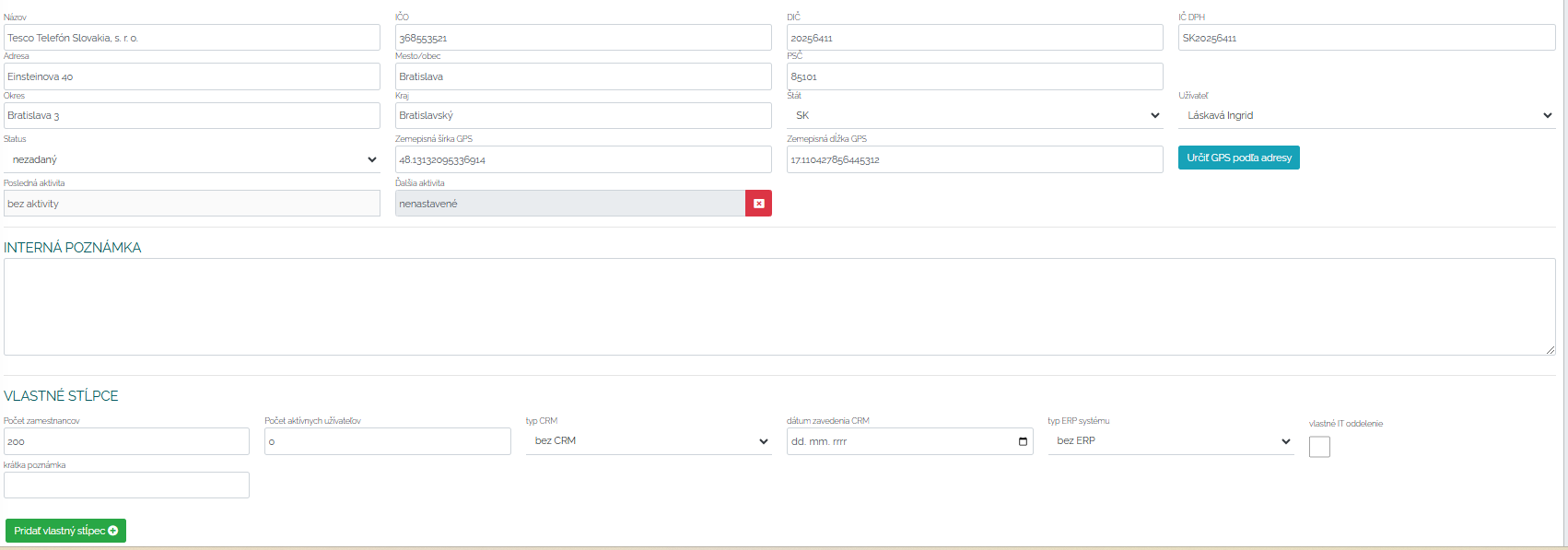Each company is specific and likewise its object of business. Mango is so responsive that it can adapt its content to the needs of users. When we put it into practice, a company that sells shoes is interested in different parameters than a company that sells a CRM system. Our own columns serve us well for these different parameters. We can therefore store various data for clients. It doesn't matter if it's numbers, dates or text. And we know exactly these data clearly sort, group or filter.
Let's look at it step by step. When we look at the client card there, in addition to the basic data about the company, a section of custom columns will open. You can really define anything you need there. Type of CRM? Number of employees? Number of hands? A leg? Anything that is relevant to you :). 
As we have already seen, we can create any custom column type, whether it is a text of different length, whole or decimal number, date, checkbox, list or multi-list. At the same time we can define for each custom column who can use this field to edit and whether it is completed mandatory or not. As soon as the custom column becomes a mandatory value, the user will not save the contact without filling this field. Mango will notify him of the obligation to fill in the given item. You can also define whether you want to save this custom field in the list of clients (companies) or the list of people. Yes, we can also create our own columns for persons, and the reason for this creation is the same as for companies. Even with the list of people, we can track various parameters, such as: who is the main person for decision-making, the employee's salary, the person authorized to sign the contract, etc.
The created custom columns are shown to us at the end of the rows in the table view. I can easily adjust this location where I need it. As we can see in the picture, this is, for example, data: type of ERP system, own IT department, short note. At the same time, in the image, we have increased the search filter so that we only see companies that have their own IT department. And that's how I have it in a few seconds filtered database of companies or persons, which I need according to of the selected custom column filter.
Such filtering of companies or persons according to different types of custom columns is the first bottleneck when we want to send, for example email campaigns. Let's say that we have created our own column for companies, which tells us whether or not the company uses an attendance system. For example, we will create a yes/no check box. After that, we can easily filter out companies that do not use the attendance system at all, and we will send these companies an e-mail about the product, benefits, and we will include what we need in the e-mails. Practical though? If you want to know about principles of how mass e-mails work, click to learn more.


